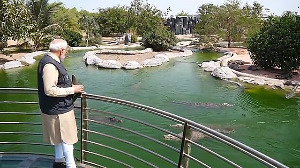According to the 2009 Expat Explorer Survey by HSBC Bank International, the highest paid expats in the world prefer living in Asia, while their lowest paid counterparts go for Australia and Western Europe.
The highest proportion of expats earning more than $250,000 are in Hong Kong (27 per cent), Japan (26 per cent) and India (25 per cent) compared with a global average of 16 per cent.
Further, about 30 per cent of high-salaried expats live in Russia and 25 per cent in Switzerland, it added.
The survey revealed that Asian countries were among the cheapest for accommodation, with expats in India, Malaysia and China finding accommodation much cheaper than they did living in their countries of origin.
About 43 per cent of the expats surveyed find accommodation cheaper in India and allocating much less of their income towards accommodation, compared with expats globally, it said.
The report said that the lowest-paid expats live in Australia and Belgium, with the majority (63 per cent and 61 per cent versus 35 per cent overall) of expats earning under $100,000.
In addition to commanding high salaries, expats in Asia further recession-proofed themselves by scaling back on the luxuries.
The survey found that 54 per cent expats in Japan , Thailand (51 per cent) and Hong Kong (49 per cent) scaled down their spending on luxury items, such as holidays and leisure activities.
Interestingly, many expats are able to take advantage of their move to another country in order to increase the amount of money they save, the survey said.
Over two-thirds of expats reported that they are saving and investing more since they moved away from their home country. And the figure rises to 80 per cent when looking at the highest-paid expats, while only 14 per cent said that they are saving less than when they were resident in their countries of origin.
About 63 per cent of expats worldwide agreed that the credit crunch had changed their attitude to spending.
The most affected expats are based in Russia, US and Japan with over 70 per cent of expats from these countries saying the credit crunch had changed their attitudes to spending and saving.






 © 2025
© 2025